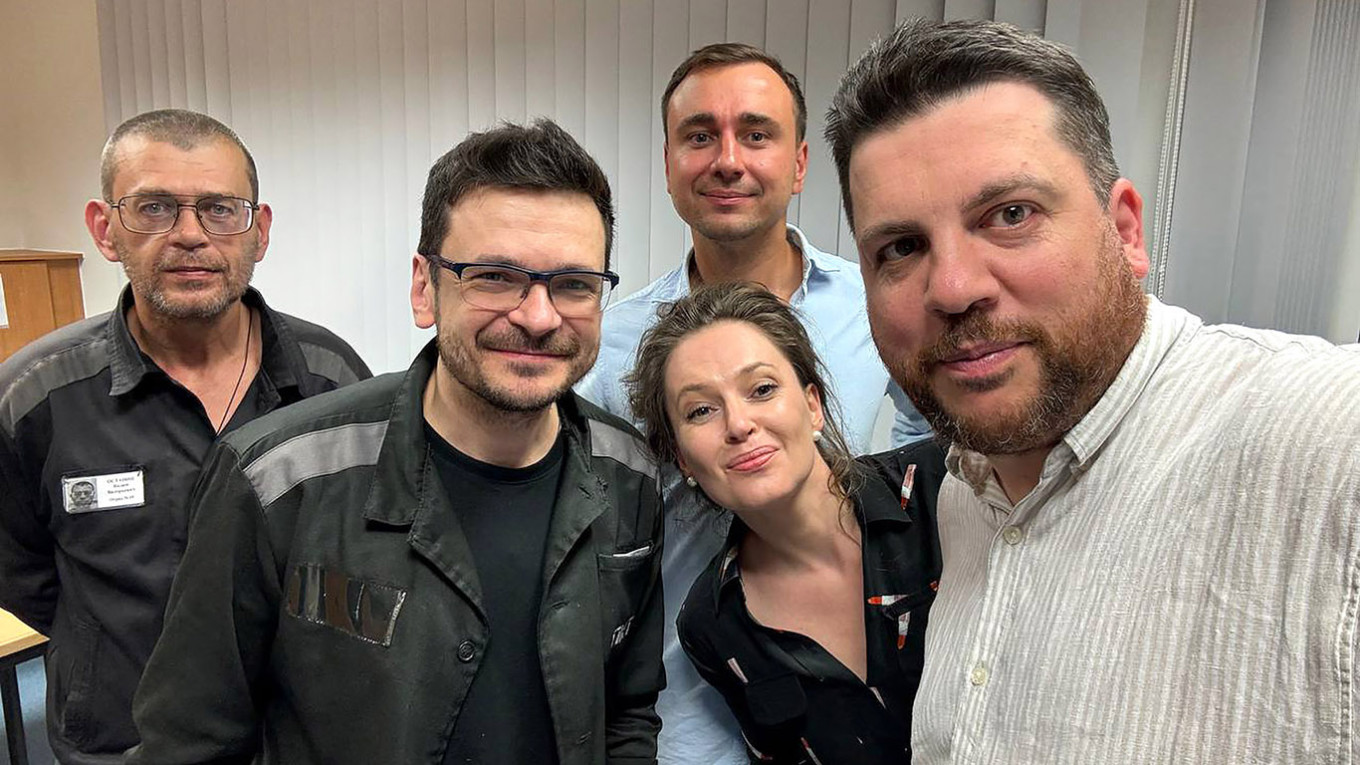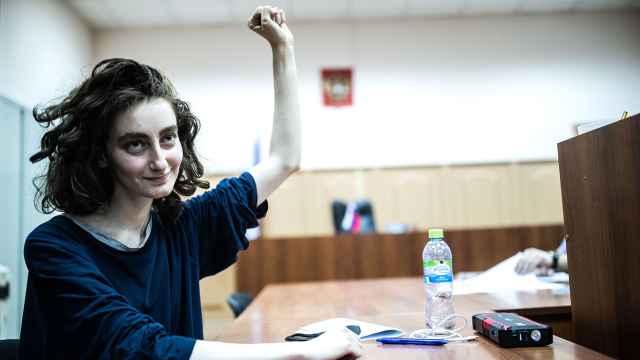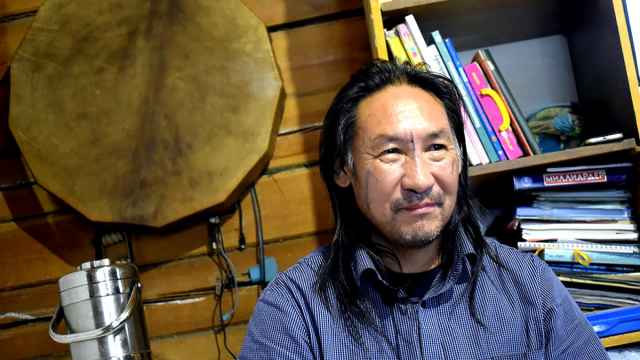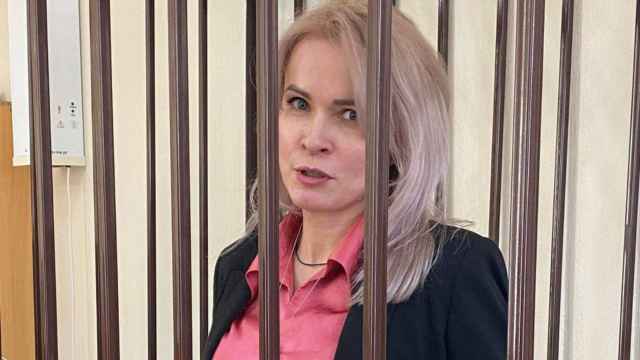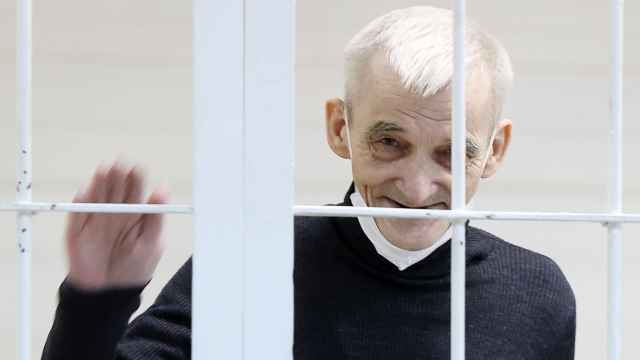Sasha Skochilenko did not know what was happening as she was taken from her St. Petersburg prison cell to Moscow, where men in balaclavas escorted her onto a plane with several other prisoners.
“We were accompanied by a dozen people in balaclavas,” said the 33-year-old St. Petersburg artist, who was freed Thursday from a seven-year prison sentence for replacing supermarket price tags with anti-war messages.
“They didn’t let us [prisoners] sit together on the bus. I started asking where we were going and why. ‘They told me: if you talk, you'll go in a bag’,” she told the independent Dozhd broadcaster from Cologne, Germany, where the prisoners arrived late Thursday night after the exchange in Ankara.
“It felt like we were being taken out to be shot.”
Skochilenko became one of the 16 U.S., German and Russian journalists, dissidents and rights activists who were released by Moscow in Thursday’s historic prisoner exchange between Russia and the West.
As the 12 freed Russian and German prisoners are being quarantined in a hospital in Germany until Sunday, they are largely unable to communicate with the outside world.
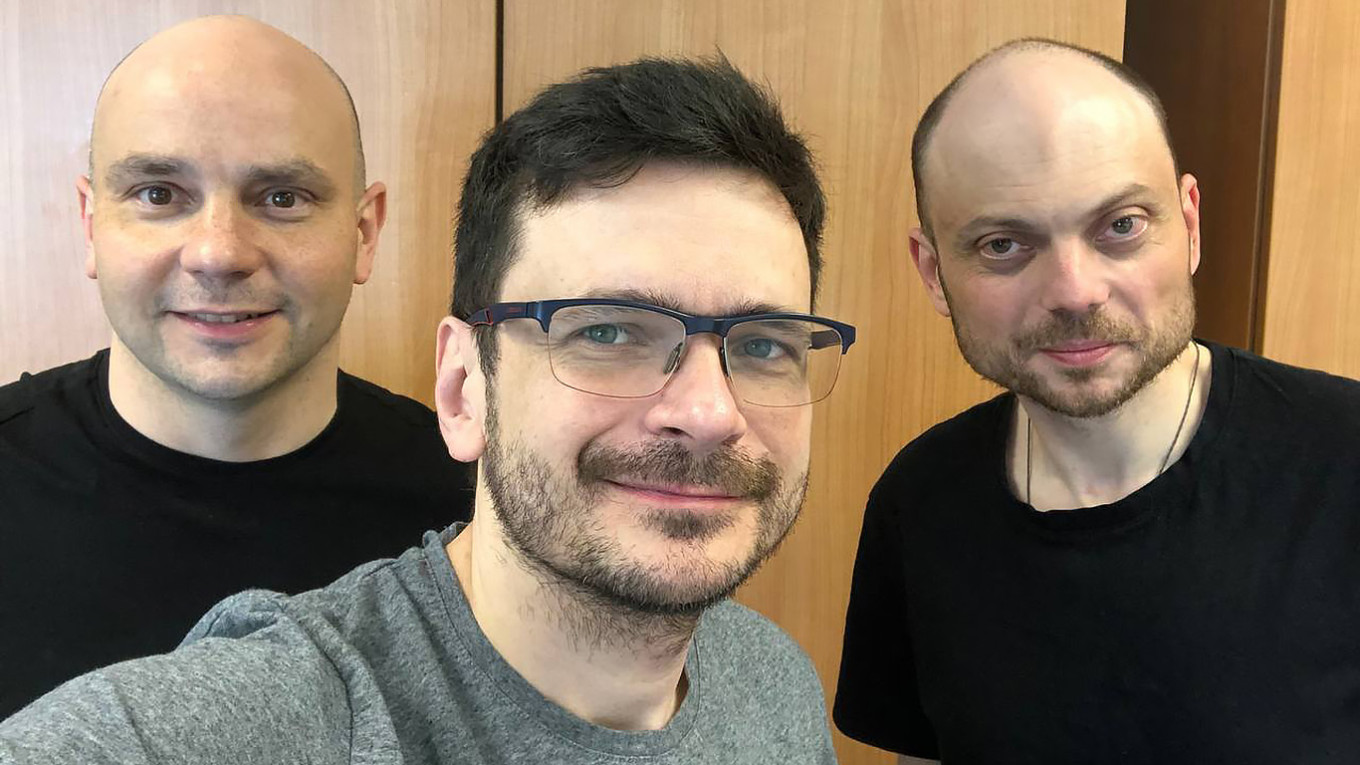
Their friends and relatives have recounted the uncertain, frightening hours that preceded the news of their release in one of the largest and most complicated prisoner swaps in history.
Starting Monday, news emerged that several high-profile dissidents and journalists had been moved from their prison facilities to unknown locations.
As more prisoners disappeared in the days that followed, speculation grew that a major prisoner exchange was in the works. But friends, families and the prisoners themselves were kept in the dark.
When asked about the widely anticipated prisoner swap on Wednesday, an influential former official close to the Kremlin told The Moscow Times: "We'll announce it as it happens. There's no need to run ahead of the locomotive. We do not practice this."
Almaz Gatin, the husband of freed Navalny coordinator Lilia Chanisheva, arrived at his wife’s prison colony on Sunday to hand her a package — only to find out that she was no longer there.
“Then I started searching for her. I did not manage to find anything out for several days. I found out by phone on July 30 that she would be released,” Gatin told an independent Russian YouTube news show on Friday morning.
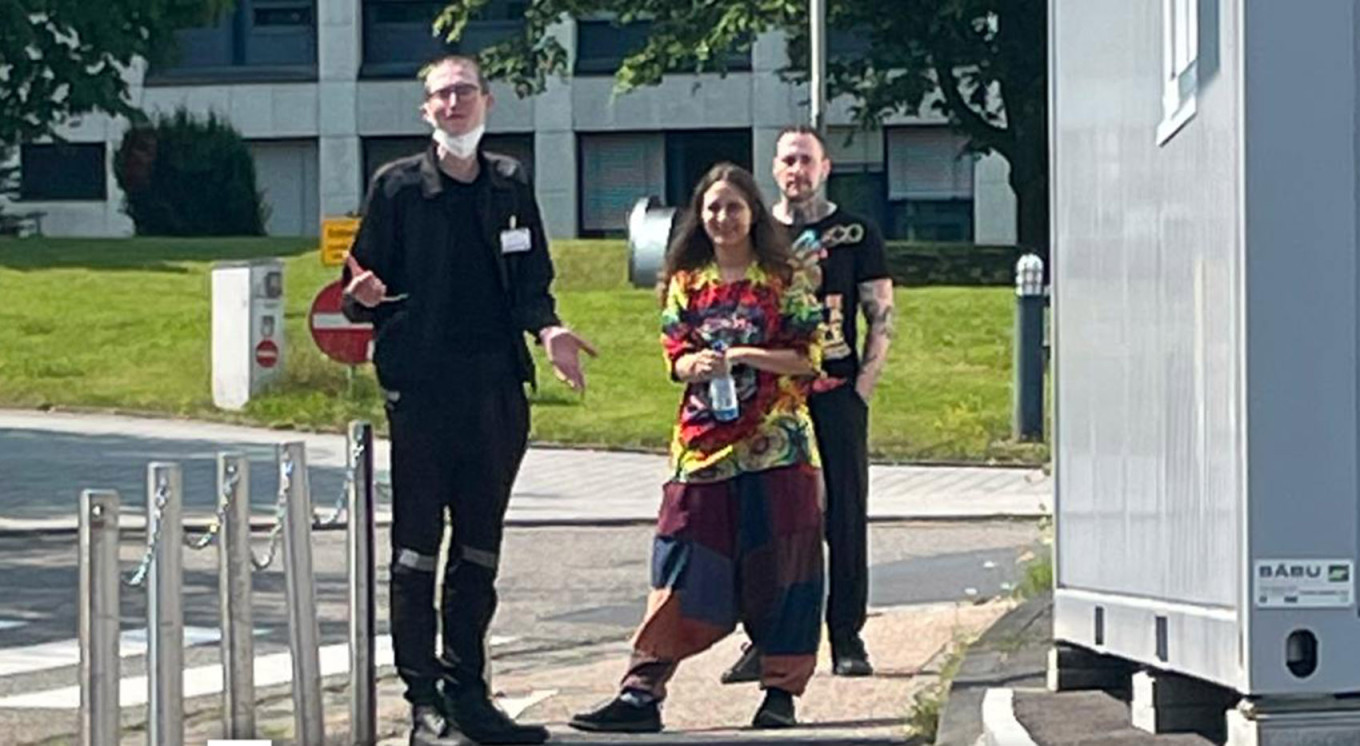
“I spoke to her for the first time yesterday — she called me when they had already been brought to Ankara,” he said.
Skochilenko’s mother Nadezhda told the same program that she found out about her daughter’s release on Wednesday evening. “But even at that point, there were no guarantees.”
Tatyana Yashina, mother of opposition politician Ilya Yashin, told AFP that “We didn't believe it and didn't know anything until the last minute.”
The prisoners themselves did not learn that they were being exchanged until their plane landed in Ankara, according to Skochilenko and freed opposition activist Andrei Pivovarov’s wife Tatyana Usmanova.
Russian officials worked hard to keep the exchange shrouded in secrecy even as rumors reached a fever pitch.
“There was a strict order to keep the information about the exchange strictly confidential. From everyone. From the prisoners themselves. From their lawyers and relatives. And even from Russian prison system (FSIN) employees,” a person familiar with the matter told The Moscow Times, speaking on condition of anonymity in order to discuss the highly sensitive exchange.
“After they started transporting them, the only instructions given were to escort — to transfer [them] to somewhere else inside the country — not a prisoner swap.”
While most of the prisoners could have easily been escorted on a commercial flight, officials chose to transport them by private and government planes to prevent their movements from being publicly known, the source said.
Another option being considered was taking the prisoners in regions close to Moscow to a meeting point by ground transport.
For the families and friends of the political prisoners from Russia who were freed on Thursday, the news came with a great sense of relief. But it also brought new complications for those who remained in the country.
Pivovarov’s mother, Raisa Tyurikova, was expecting to welcome her son at home in St. Petersburg when his prison sentence was originally set to end next month. Then, on Thursday, she found out he was flying to Germany.
“There was a month left, and now nothing makes sense — but that’s from my perspective. But maybe all of this is for the better. Who knows? In any case, I hope that we will see each other soon,” Tyurikova told the St. Petersburg-based Bumaga news website.
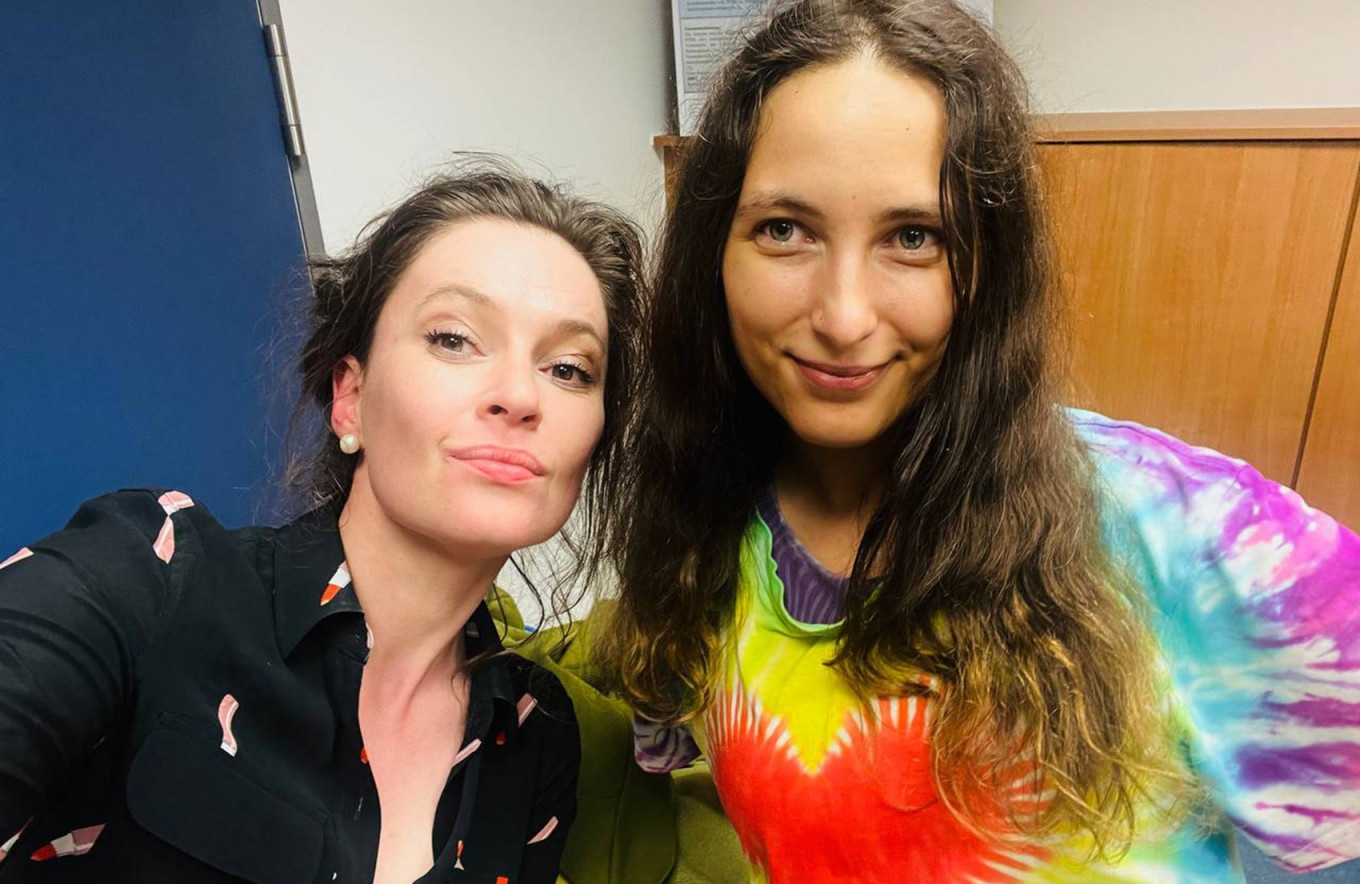
The parents of freed Navalny coordinator Ksenia Fadeyeva said they were weighing their options for visiting their daughter or leaving Russia altogether.
“We don't know anything yet. But we are ordinary citizens, not military, with no restrictions on entry or exit. I think they’ll let us see each other," Vladislav Fadeyev, Fadeyeva’s father, told the Okno news website.
“There is nothing keeping me here anymore,” Fadeyeva’s mother Irina said. “My husband and I will discuss it further. But I do not rule out that we will move [outside Russia] later on.”
On the opposite side of the exchange, the Russian citizens released by the West appeared to have been equally caught off-guard.
Artem Dultsev and Anna Dultseva, who were sent to Russia with their children in the deal, had been posing as an Argentine couple that ran an IT business and art gallery in Ljubljana.
"The children of the illegals who arrived yesterday only found out they were Russian on the plane from Ankara. They do not speak Russian," Kremlin spokesman Dmitry Peskov told reporters on Friday.
As they stepped onto the tarmac in Moscow, Putin greeted the children with "buenas noches" — Spanish for "good evening.”
A Message from The Moscow Times:
Dear readers,
We are facing unprecedented challenges. Russia's Prosecutor General's Office has designated The Moscow Times as an "undesirable" organization, criminalizing our work and putting our staff at risk of prosecution. This follows our earlier unjust labeling as a "foreign agent."
These actions are direct attempts to silence independent journalism in Russia. The authorities claim our work "discredits the decisions of the Russian leadership." We see things differently: we strive to provide accurate, unbiased reporting on Russia.
We, the journalists of The Moscow Times, refuse to be silenced. But to continue our work, we need your help.
Your support, no matter how small, makes a world of difference. If you can, please support us monthly starting from just $2. It's quick to set up, and every contribution makes a significant impact.
By supporting The Moscow Times, you're defending open, independent journalism in the face of repression. Thank you for standing with us.
Remind me later.




